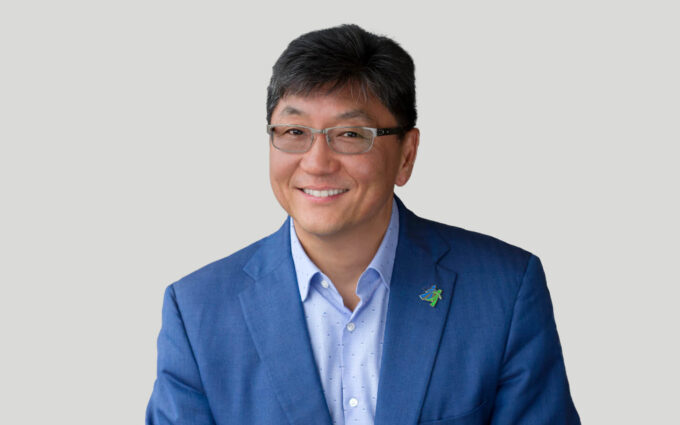06/17/2019

Michael Choo, MD, Paradigm Chief Medical Officer and Senior Vice President, is a founding member of the first national registry to collect data to improve prevention, treatment, and rehabilitation efforts for people who have lost limbs.
The decision to create a national registry for limb loss and preservation was spurred by the growing number of U.S. military veterans returning from Afghanistan and the Middle East with lost limbs. The registry will give researchers access to the largest data set specific to limb loss and amputation care in the U.S. It will help patients and healthcare providers to better understand treatment and surgical options for limb preservation (maintaining the limb) or amputation.
The National Limb Loss and Preservation Registry, funded in September 2018, is a partnership of the Department of Defense (DoD), National Institute of Health (NIH), and the Mayo Clinic. The registry is expected to be operational in 2020.
We spoke with Dr. Choo about his role on the registry and its External Collaborative Panel.
Q: Tell us about the Registry and Paradigm’s role.
Dr. Choo: To be invited to be a member of this prestigious group, and such an important initiative, is really a recognition of Paradigm’s reputation of clinical excellence in catastrophic injury care management.
We have focused on managing and guaranteeing clinical outcomes of catastrophically injured workers since 1991. We collect clinical, treatment, and payment data on our patients through the whole continuum of care—from injury all the way through to the achievement of treatment outcomes. We effectively analyze our data collection to better understand what works, what doesn’t, and what the outcomes can and will be over time. We are always improving with the knowledge and insights gleaned from our observational clinical data.
This is why I’m really excited to embark on the creation of a large registry that will have a tremendous impact on improving outcomes for patients with limb loss. The registry will provide evidence-based data to providers, patients, researchers, and payers across the country about the efficacy and appropriateness of limb care.
Also important for Paradigm, two clinical providers in our network of medical experts are also on the panel: Danielle Melton, MD; Director, Amputee, Orthotics, and Prosthetics Program from TIRR Memorial Hermann Hospital; and Diane J. Atkins, OTR, FISPO; Assistant Clinical Professor, Baylor College of Medicine.
I’m honored by the opportunity to contribute to the registry and work with Dr. Kenton Kaufman, a renowned researcher and academician with Mayo Clinic, and with the other impressive stakeholders.
Q: What’s the purpose of the registry? How will it work?
Dr. Choo: Over the years, a lot of advancements have been made with prosthetics and surgical innovations for amputations, amputation care, and limb preservation. Even so, many clinicians make choices without sufficient documentation of objective scientific evidence in the medical literature. Up until this point, because amputations are not very common, there hasn’t been much effort to collect or aggregate outcomes data associated with limb loss patients.
The LLPR registry will gather and analyze a huge amount of data involving:
Q: What partners/organizations support the development and launch of the LLPR?
Dr. Choo: The LLPR’s oversight committee includes representatives from NIH, DoD, Veterans Affairs, the Centers for Medicare & Medicaid Services, and the Food & Drug Administration. Mayo Clinic is collaborating with the American Academy of Orthopedic Surgeons and the Thought Leadership & Innovation Foundation to perform this work.
Q: Who are some key members of the External Collaborative Panel?
Dr. Choo: The External Collaborative Panel brings together three diverse groups of experts to guide the Mayo Clinic team:
We also plan to gather patient advocacy representation from organizations such as the Amputee Coalition of America. Mayo Clinic, of course, has respected experts in research and academia.
Q: How will the External Collaborative Panel shape and guide the registry’s development?
Dr. Choo: This is a prodigious and rewarding endeavor for everyone on the panel. We will deliberate, debate, and share perspectives and expectations. Our goal is to help the Mayo Clinic team plan and execute the registry with recommendations on what information should be collected, how to collect it, how to make the data secure and available for research, and how to keep the registry available for posterity.
Essentially, we are working to ensure that the registry is implemented properly and successfully for the long term. We’re thinking about everything from the framework of data collection, storage, analysis, access, and governance, in addition to the future funding sources for maintenance and durability of the registry.
Stay up to date with industry news by connecting with Paradigm on LinkedIn, Twitter, and Facebook.